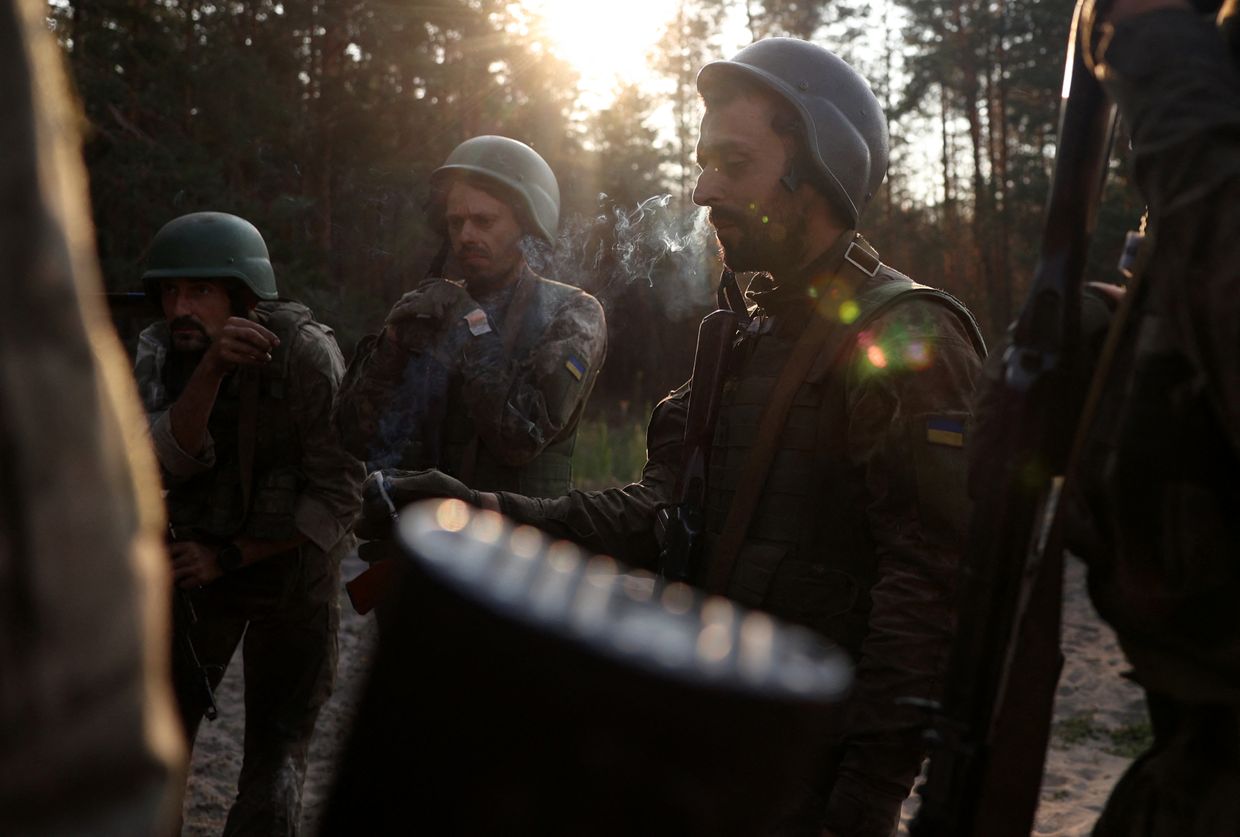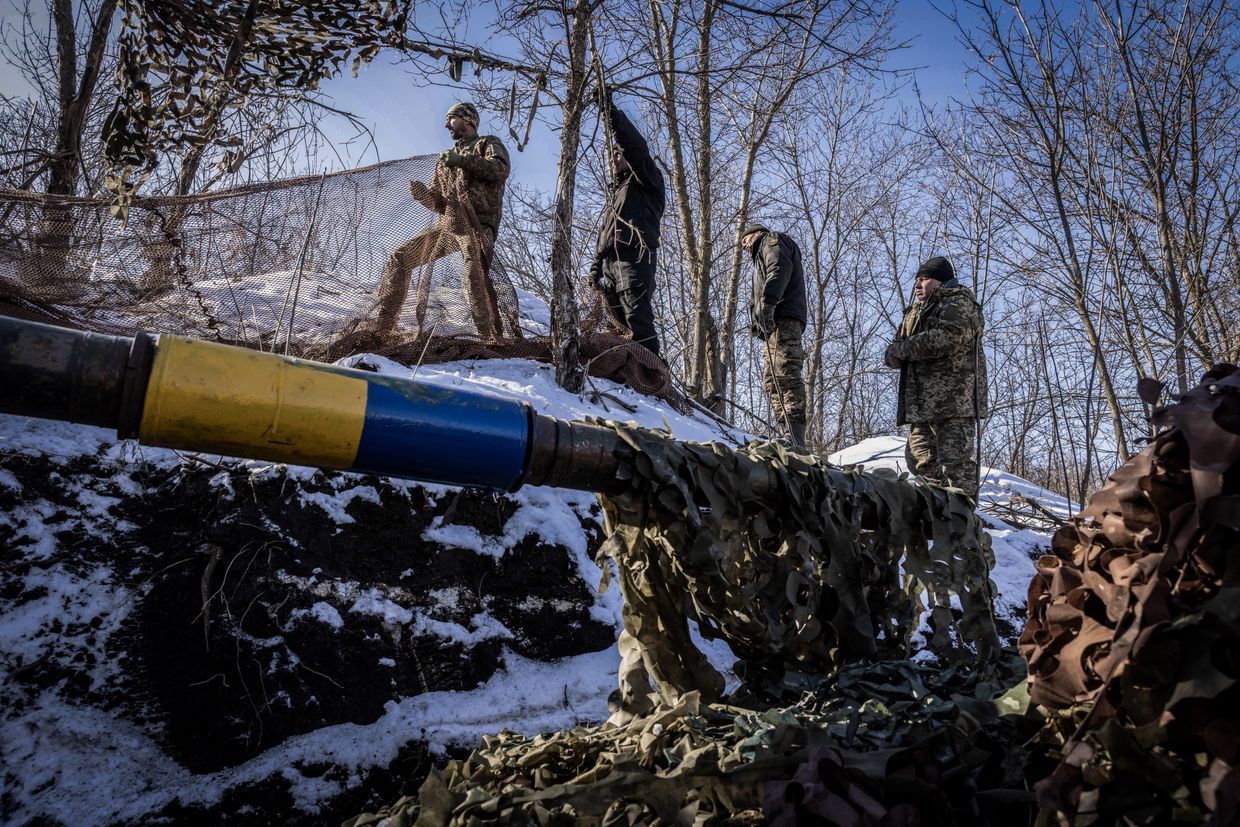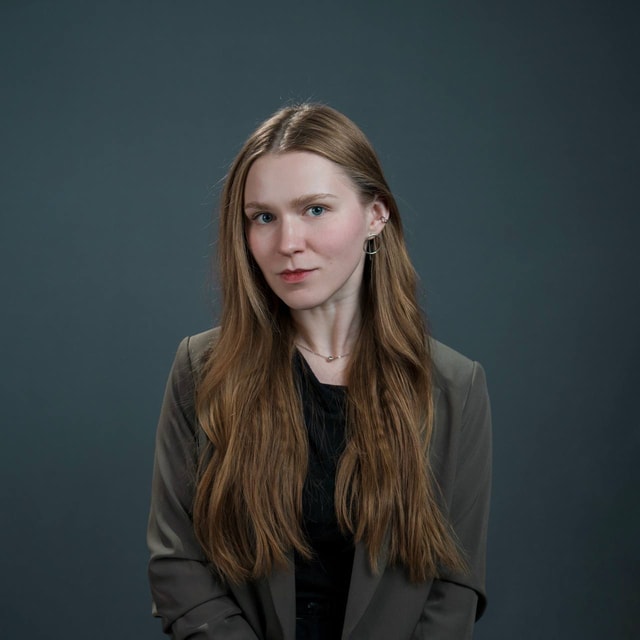With peace talks underway, Ukrainian political veterans align themselves with Trump

Petro Poroshenko, Ukraine's former president, attends the European People's Party congress in Bucharest, Romania, on Wednesday, March 6, 2024. (Andrei Pungovschi/Bloomberg via Getty Images)
Ukrainian political veterans long out of power have emerged as a new source of pressure on Ukraine's political leadership.
Following the clash in the Oval Office between President Volodymyr Zelensky and his U.S. counterpart, Donald Trump, the White House began to look for ways to subdue Zelensky.
Trump's halt on U.S. military aid shipments and intelligence sharing with Ukraine was part of the pressure campaign. The White House, however, was looking for additional ways to hit Zelensky's standing at home.
Former President Petro Poroshenko, the de facto leader of Ukraine's opposition, said following the scuffle that he wouldn't criticize Zelensky "because this is not what the country needs now."
Following his team’s reported meetings with members of the Trump administration, the former president changed his tune and lashed out at his successor.
He criticized Zelensky for the sanctions imposed on him and said that Zelensky is the "unfortunate leader of the team who moves the nation to dictatorship."
In an interview with the Guardian, published on March 24, Poroshenko said that the White House meeting was a "disastrous mistake" by Zelensky and his team.
He also said that Ukraine should "forget now the word offensive operation" and stop losing "people, territory and time." The narratives appear to be in sync with Trump's.
Simultaneously, the same pivot was made by former Prime Minister Yulia Tymoshenko, who also was in contact with Trump's inner circle, according to Politico.
Political analyst Volodymyr Fesenko said that Tymoshenko and Poroshenko's rhetoric has escalated due to the ongoing ceasefire talks that would potentially trigger an election campaign in Ukraine.
Aligning with the U.S. leadership against that of Ukraine, for some, may seem as a politically beneficial thing to do.
"There are again expectations that there may be a ceasefire agreement in the near future, and then the start of the election campaign in some time. This, I think, is pushing both Poroshenko and Tymoshenko to this (political) positioning," Fesenko said.
US ties with Ukrainian opposition
In early March, Politico reported, citing three unnamed Ukrainian lawmakers and a U.S. Republican foreign policy expert, that Trump's allies held secret talks with senior members of Poroshenko's European Solidarity party, as well as with Batkivshchyna (Fartherland) party leader Tymoshenko.
The talks were reportedly focused on whether Ukraine can hold quick presidential elections. The two politicians confirmed that talks occurred but denied the meetings were part of a plot to replace Zelensky.
Both parties hold a few dozen seats in Ukraine's parliament.
Meetings between Ukrainian politicians and their foreign counterparts are commonplace, lawmakers from the opposition parties told the Kyiv Independent.
Lawmaker Mykola Kniazhytskyi, representing Poroshenko's European Solidarity, said he visited the U.S. with the ruling Servant of the People party as part of a Ukrainian delegation. They met with congressmen from the Democratic and Republican parties, including "people close to Trump."
"We will never allow ourselves to go and talk to anyone abroad about the elections, about any harm to Zelensky, since, in this case, Russia wants to overthrow Zelensky," Kniazhytskyi told the Kyiv Independent.
"Obviously, we want to hold elections in opposition to Zelensky. But we believe that holding elections now under martial law is dangerous for the stability of the country. It can be used by the Russians against us."

Both Poroshenko and Tymoshenko maintain a strong presence in Ukraine's parliament and are well-known in and out of Ukraine due to their political careers spanning decades.
Tymoshenko's career highlight was her role as prime minister in 2005 and again between 2007 and 2010. Poroshenko was Ukraine's president from 2014 until 2019, when he lost his reelection bid to Zelensky in a runoff landslide.
Tymoshenko and Poroshenko attempt to stay relevant in Ukraine and abroad. Both hired American lobbyists to promote their interests in the U.S., Radio Free Europe/Radio Liberty's investigation project Schemes and Deutsche Welle reported.
Despite the flurry of activity, neither Tymoshenko nor Poroshenko have a real chance of competing with Zelensky.
According to a survey carried out by the Identity and Borders in Flux: The Case of Ukraine (IBIF) project in partnership with the Kyiv International Institute of Sociology (KIIS), around 8% of Ukrainians would vote for Poroshenko and 5% for Tymoshenko. The poll showed that 41% support Zelensky.
The poll didn't include Valerii Zaluzhnyi, former commander-in-chief of the Ukrainian Armed Forces, who is seen as Zelensky's main and likely only real challenger.

Over the years, Poroshenko and Tymoshenko's influence on Ukraine politics had been dying out.
Tymoshenko ran for president three times, losing all her bids and not making it to the runoff during her last try in 2019.
Poroshenko has been voted out of office by a vast majority of Ukrainians, gaining a mere 25% in the 2019 presidential election runoff, compared to Zelensky's 75%.
Poroshenko's tenure as president coincided with Trump's first term. Now, Poroshenko is praising their relationship with Trump, positioning himself as one of the few who knows how to deal with the U.S. president.
Following Trump's inauguration, both Ukrainian politicians traveled to the U.S. to meet with those close to the new president.
Poroshenko said he met in December with Trump's National Security Adviser Mike Waltz and Mike Treanor, Republican congressman and chairman of the House of Representatives Intelligence Committee, in July.
When asked about his current relations with Trump, the former president said he had a handshake with him during the National Prayer Breakfast in Washington last month.
Unlike Poroshenko, Tymoshenko has always remained tight-lipped about her meetings with U.S. top officials.
In early January, a photo of her with Keith Kellogg was published during an Iranian opposition event in Paris.
Later, Tymoshenko was spotted in the U.S. during one of the events marking Trump's January inauguration. It's unclear whether she was invited and whether she met with American officials. Soon after, the politician was spotted at a Ukrainian prayer breakfast in Washington that brought together a number of Ukrainian lawmakers.
Politico reported on March 18, citing undisclosed sources, that U.S. President Donald Trump's son, Donald Jr., far-right political commentator Tucker Carlson, Trump's son-in-law Jared Kushner, and Special Envoy Steve Witkoff were involved in backchannel talks with Zelensky's political rivals.
Out of the four, only Witkoff is a government official.
Neither Tymoshenko nor Poroshenko commented on these reports.
According to Fesenko, throughout her career, Tymoshenko has always sought contacts with those in the U.S. administration — whoever the president was.
"This is her instinct," the expert said.
"I don't think she (Tymoshenko) has that many contacts with Americans, but for her, it is a matter of political survival. She's a very experienced, very active politician, and now there's a situation where she sees contradictions between Trump's and Zelensky's positions, and she's trying to take advantage of it," he added.
Misreading Ukrainian politics
While willingness of Ukrainian politicians to secure the backing of U.S. officials may be logically explained by political observers, Trump's fixation on Ukrainian elections signals his misunderstanding of Ukrainian domestic politics, experts say.
"Trump is a hostage of his own worldview. He believes that what he says is the last resort."
"The fact that Trump is talking about elections shows a complete lack of understanding of what is happening in Ukraine and what the internal political situation is," said Olexiy Haran, research advisor at the Democratic Initiatives Foundation.
"I think this is a brazen interference in Ukrainian politics."
Observers believe that Trump's look at Ukraine is distorted. Just like Russia's.

"Trump is a hostage of his own worldview. He believes that what he says is the last resort," said political analyst Yevhen Magda.
"I think that in the current circumstances, Trump's position is a relay of (Vladimir) Putin's position."
Back in 2019, Russia considered Zelensky's presidential candidacy to be more favorable for Moscow, seeing him as potentially someone who could bring Ukraine closer to Russia and make concessions amid the ongoing war. Zelensky played along, saying that he would be the best person to talk to Russia.
Following a few months in office, Zelensky began to toughen up his rhetoric and later imposed sanctions on the country's pro-Russian politicians.
"Putin believed that if we replaced Poroshenko, Ukraine would surrender. Now, he believes that if we replace Zelensky, Ukraine will surrender. For some reason, Americans believe that the new person who comes after him will make concessions to Russia. In fact, they don't understand that the main power is the Ukrainian people fighting for their independence," said Haran.
"Trump says: Ukraine may survive or may not survive. He does not understand what Ukraine is. He generally does not understand what a nation that fights for its independence is."
Note from the author:
Hello there! This is Kateryna Denisova, the author of this piece. I hope you found this article informative. Despite ongoing Russia’s full-scale war, Ukraine’s domestic politics has been brewing over past months.
Please consider supporting our reporting. We promise to deliver more stories on this topic going forward.














